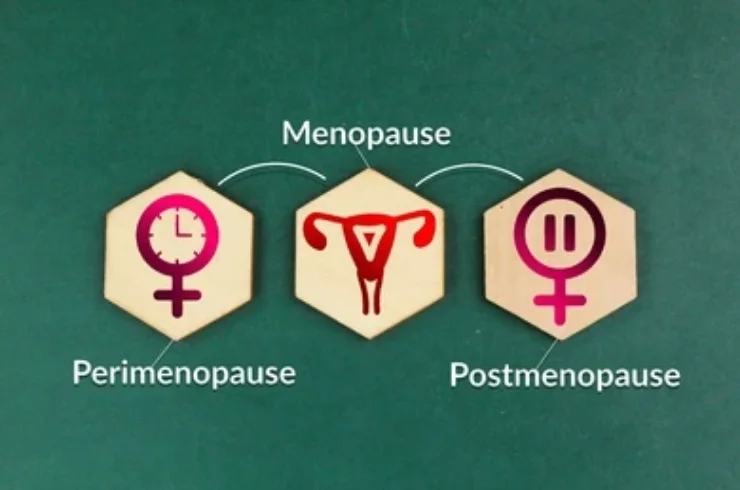
Menopause and perimenopause are natural stages in a woman’s life that signify the end of her reproductive years. These stages involve significant hormonal changes, which can affect both physical and emotional health.
Perimenopause is the transitional phase leading up to menopause. It typically begins in a woman’s 40s but can start earlier. During this phase, the ovaries gradually produce less estrogen, and menstrual cycles may become irregular. Symptoms can vary widely and include hot flashes, night sweats, irregular periods, mood swings, sleep disturbances, and vaginal dryness. These changes can last for several years, leading up to the point when a woman has gone 12 months without a period, marking the onset of menopause.
Menopause officially occurs when a woman has gone a full year without menstruating. The symptoms of menopause are similar to those experienced during perimenopause, but they may become more pronounced due to the lower levels of estrogen and progesterone in the body. Common symptoms include hot flashes, vaginal dryness, decreased libido, mood swings, and memory problems. Long-term changes include an increased risk of osteoporosis, heart disease, and weight gain.
Management of menopause and perimenopause often includes hormone replacement therapy (HRT), lifestyle modifications, and natural remedies to alleviate symptoms. Dietary changes, regular exercise, and stress management techniques also play important roles in maintaining overall health and well-being during these phases.
With the right care and support, women can navigate menopause and perimenopause with improved comfort and quality of life.